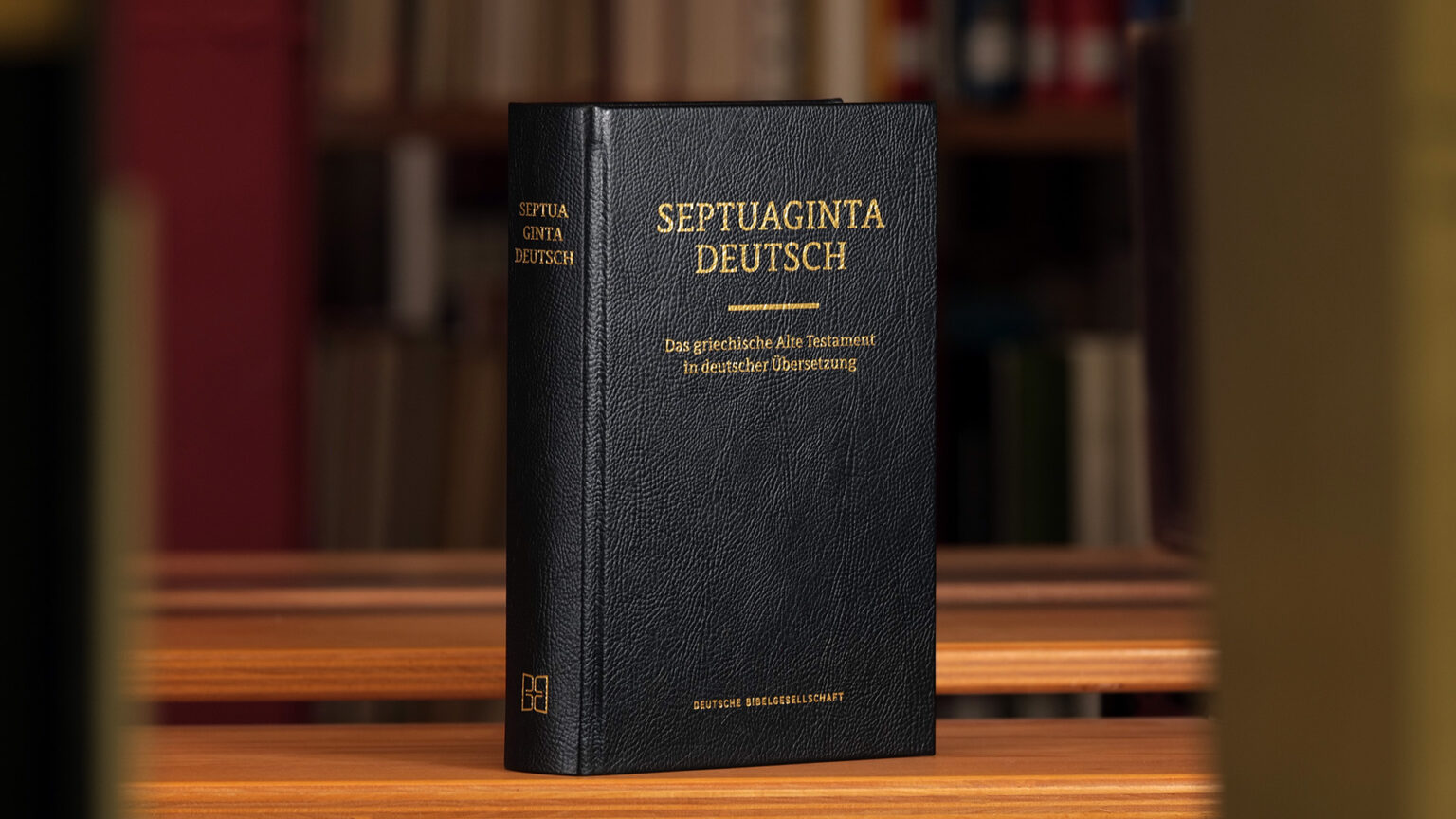Septuaginta Deutsch


The German Translation of the Septuagint
The German Bible Society’s "Septuaginta Deutsch" edition is the first complete German translation of the Septuagint. Now that knowledge of ancient Greek is on the decline, this edition takes into account that language’s eminent significance for an understanding of ancient Jewry, of the emerging New Testament, and of ancient religious history in general.
The German translation makes the Septuagint accessible beyond the circle of experts with a knowledge of Greek. It can thus attain greater significance in various courses of academic study, as well as in further areas of the humanities and of church and cultural life.
The translation was carried out over the years 1999–2008 by a group of 87 scholars. It is edited by Prof. Dr. Wolfgang Kraus (Koblenz) and Prof. Dr. Martin Karrer (Wuppertal), along with nine further co-editors.
Septuaginta Deutsch sets out to provide a philologically reliable, but nevertheless readily readable translation of the Greek text. It is founded on the Göttingen Septuagint edition, while the Rahlfs edition is used for the books not yet contained in this version. The translation is supplemented by a brief apparatus, which lists the major points of divergence between the Masoretic Text and the Septuagint and includes notes on significant Greek variants and on alternative translations. In a separate commentary volume, the translators wherever necessary substantiate their critical decisions and details of their work.
The translation was carried out in small teams with representatives of various academic disciplines, largely exegetes of the Old and New Testaments, but also classical philologists, classical historians, Judaists, Egyptologists, and Patristic scholars. The necessary ecumenical dimension was secured by contributions from representatives of the Evangelical and Catholic Churches and in discussion with Christian Orthodoxy and Jewry.
Regular conferences attended by all translators and editors ensured communication between the contributors and uniformity of the translation. An office in Koblenz coordinated the work, promoted stimulating discussion and exchange, and supervised the editorial activity.
